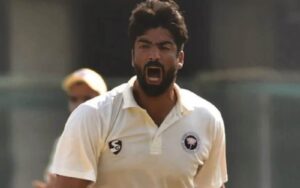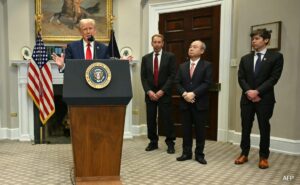Opinion: Now, Chandrababu Naidu Wants People To Have More Children
For a country that is emerging as the most populous nation on earth, a new call urging families to have more children may seem anachronistic. It also seems surprising that this plea is being emphasised by a Chief Minister renowned for his progressive actions.
The Andhra Pradesh government’s decision to amend rules requiring candidates for local body elections to have more than two children has raised many eyebrows. With an estimated population of 1.45 billion and decades of countrywide advocacy for a two-child norm, the Andhra Pradesh government led by Chief Minister Chandrababu Naidu has amended relevant acts governing panchayats, zila parishads and municipalities. The state is now poised to implement rules mandating that candidates taking part in local body polls have more than two children. This comes three decades after the introduction of a cap on the number of children public representatives have at the third tier of governance. Naidu’s government has now removed this limit.
A Small Window
The Chief Minister reassessed the law after realising the need to address the state’s demographic imbalance. Andhra Pradesh’s Total Fertility Rate (TFR) is around 1.7, well below the 2.1 norm that is typically considered necessary for stabilising a population. By next year, the state’s population is expected to reach 53.8 million, growing to 54.4 million a decade later. However, projections suggest that by 2041, the population will begin to decline, potentially dropping to 54.2 million. These statistics, cited by the Chief Minister, underscore the reasons behind his new call for policy changes.
A United Nations report published in September 2023 estimated that 10.5% of Indians are currently aged 60 and above. This proportion is expected to rise to 15% in a decade, and by 2046, the number of elderly people will surpass the number of children aged 0-14, while the population of those aged 15-59 will decline.
A state leader, especially one who is credited with putting undivided Andhra Pradesh on a rapid development path, cannot afford to dismiss concerns about an ageing population and the challenges it brings. Naidu is not the only leader to highlight the need for demographic correction. Tamil Nadu Chief Minister M.K. Stalin has also suggested that people in the state should have more children.
The Logic Behind The Call
Is there more to this than meets the eye? There is a context to the recent calls from Tamil Nadu and Andhra Pradesh’s chief ministers to encourage people to have larger families. The proposed delimitation of Lok Sabha seats is one such trigger. The process will adjust the number of seats per state based on population, and southern states fear their political representation will decline compared to northern states, where the population continues to grow at a faster clip.
A simple calculation based on population growth rates since the turn of the century shows this shift. In southern states, the birth rate has fallen from 2.6 to 1.5, which directly correlates with a potential reduction in the number of seats. In contrast, northern states have maintained birth rates well above the 2.1 average.
This logic was evident back in 2001, when then Prime Minister Atal Bihari Vajpayee’s government froze the delimitation exercise until 2025, after southern parties argued that states that had managed population growth better should not be penalised. As a result, a limited redrawing of constituency boundaries was carried out without increasing the total number of seats.
Limits To Delimitation
Twenty-five years later, the argument that performing states should not be penalised remains valid. The delimitation exercise, a decadal process until 1971, was then frozen in 1975 until the year 2000. In 2001, it was delayed further to 2025. However, this process must wait until after the conclusion of the delayed census, which was postponed five years ago due to the COVID-19 pandemic.
It remains uncertain how effective Naidu and Stalin’s calls will be in shifting public attitudes. Encouraging people to abandon the “Small is Beautiful” slogan, which advocates having no more than two children, in favour of larger families will not be an easy task. Studies in Japan and elsewhere suggest that changing established social norms can take time.
However, there is a compelling case for the delimitation process to be carried out innovatively. Policy planners and lawmakers should come together to develop a logical and pragmatic solution as India sets its sights on becoming a developed nation by 2047.
(K.V. Prasad is a senior Delhi-based journalist)
Disclaimer: These are the personal opinions of the author
Andhra Pradesh’s TFR is around 1.7, well below the 2.1 norm that is typically considered necessary for stabilising a population. Projections suggest that by 2041, its population will begin to decline.
NDTV News- Topstories














إرسال التعليق